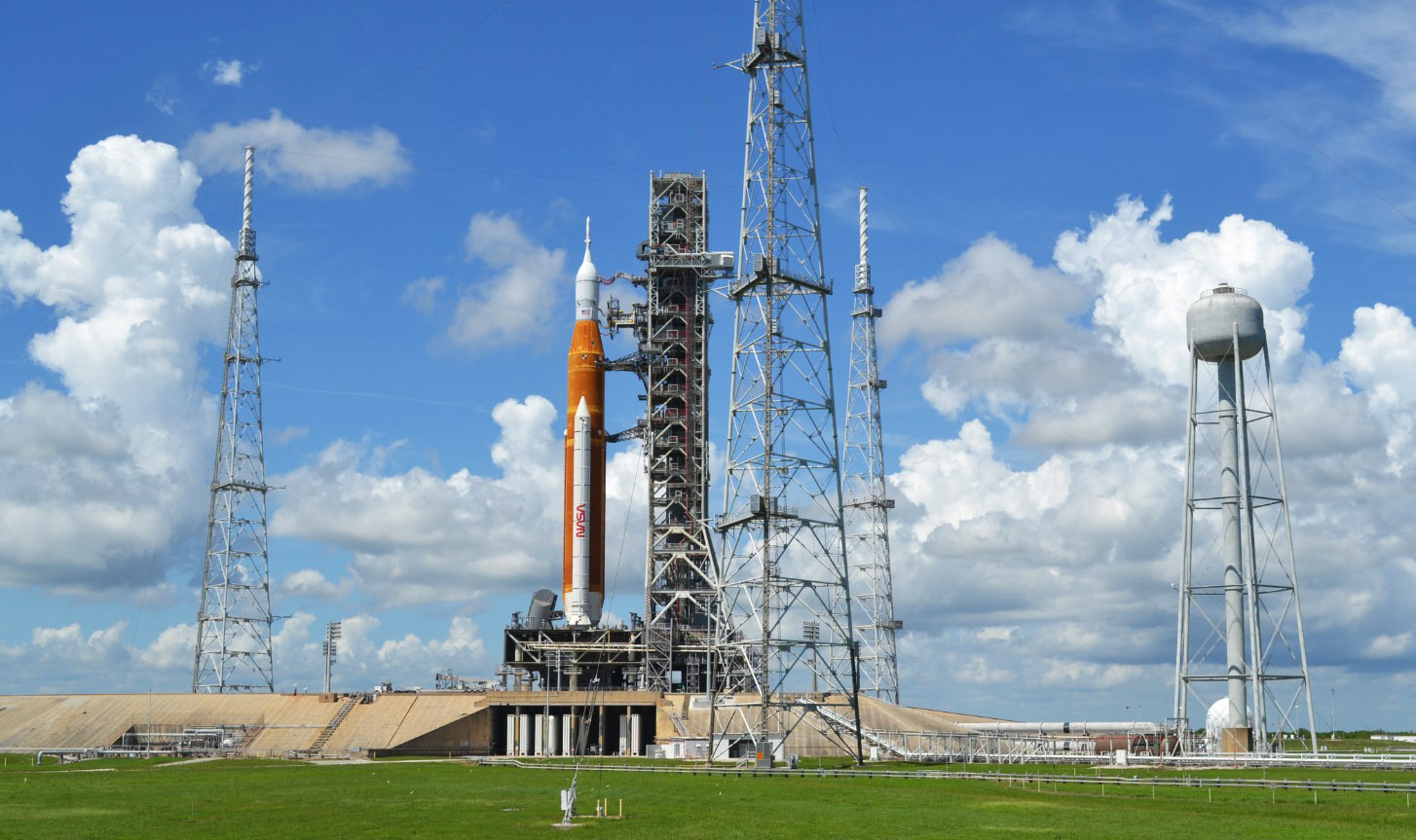Earlier on Saturday, NASA said: "During tanking of the Artemis I mission, a leak developed in the supply side of the eight-inch quick disconnect while attempting to transfer fuel to the rocket. Attempts to fix it so far have been unsuccessful."
A decision to scrub the launch was made just before 11 am local time (1600 BST).
The Artemis programme is planning to send humans back to the surface of the Moon more than 50 years after the last Apollo mission - and NASA wants to establish a base there as it targets an eventual crewed mission to Mars.
NASA’s giant SLS rocket was poised to make a second attempt to fly today (Saturday) after the US space agency declared it had identified and fixed an engine issue that caused the postponement of the original launch attempt five days earlier.
As dawn broke at KSC on Saturday morning an over-pressure alarm sounded and the tanking operation was briefly halted. No damage occurred and the effort resumed but minutes later hydrogen fuel began leaking from the engine section at the bottom of the rocket. NASA halted the operation, while engineers scrambled to plug what was believed to be a gap around a seal.
Eventually officials said three separate attempts to plug the leak, including warming fuel supply lines to try to create a plug, had proved unsuccessful and they called off the launch.
Assuming NASA engineers can fix the hydrogen leak that caused today's scrub, there are two further launch opportunities in this Artemis 1 launch period - on Monday at 5:12 pm EDT (2212 BST) with a 90-minute window; and on Tuesday at 6:57 p.m. EDT (2357 BST) with a 24-minute window.
If the Artemis 1 mission can't get off the ground by Tuesday, the Space Launch System rocket will have to roll back to the Vehicle Assembly Building (VAB) for re-testing of its flight termination system, forcing a delay that will stretch into at least October.
The Artemis 1 mission is an uncrewed test flight to beyond the Moon and back, ending with a Pacific Ocean splashdown in mid-October. It will pave the way for astronauts to be on board an Artemis II lunar fly-by in 2024 before a long-anticipated next human landing, Artemis III, scheduled for 2025.
UPDATE (Sunday, 4 Sept): NASA engineers are assessing two options to fix the latest problem - replace components in the suspect fitting at the launch pad and carry out a mini fuelling test with liquid hydrogen to verify leak-free performance. Or roll the rocket back to the VAB and carry out repairs there.
While the VAB would provide shelter from the weather and would not require assembly of an environment enclosure to protect sensitive components during the repair work, engineers would not be able to test the fitting with cryogenic hydrogen, which is when leaks are most likely to show up.
Either option means a multi-week launch delay. The next lunar launch period starts 19 September and runs through 4 October but this is unlikely as NASA is scheduled to send a fresh crew to the International Space Station aboard a SpaceX capsule on 3 October and the agency would likely want to avoid a launch conflict. That means the SLS launch likely will slip into the next launch period, which opens 17 October and runs until the end of the month.











